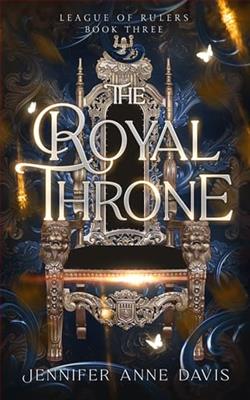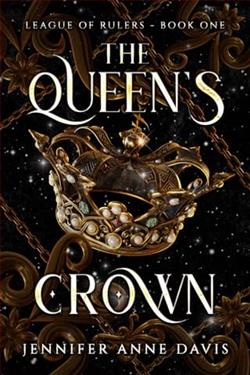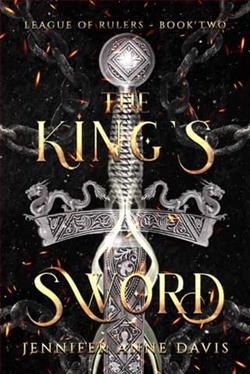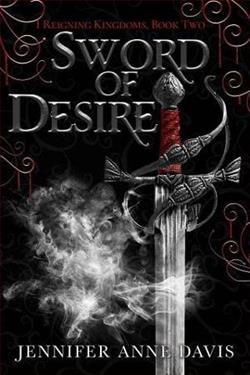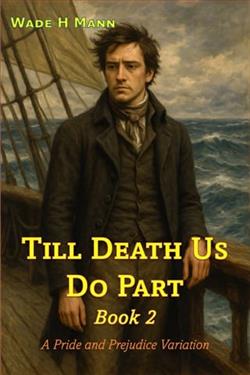Page 44 of Into the Water
• • •
I TOOK AGES to fall asleep and when I woke suddenly, feverishly hot, it was to inky darkness, the kind of deep black that makes it impossible to see your hand in front of your face. Something had woken me, I felt sure: a sound? Yes, a cough.
I reached for my phone, knocking it off the little bedside table, the clatter as it fell to the floor startlingly loud in the silence. I scrabbled around for it, gripped suddenly by fear, sure that if I turned on the light it would reveal someone standing there in the room. In the trees behind the cottage I could hear an owl hooting, and then again: someone coughing. My heart was beating too fast, I was stupidly afraid to pull back the curtain above my bed, just in case there was a face on the other side of the glass, looking back at me.
Whose face was I expecting? Anne Ward’s? Her husband’s? Ridiculous. Muttering reassurances to myself, I turned on the light and flung back the curtains. Nothing and no one. Obviously. I slipped out of bed, pulled on tracksuit bottoms and a sweatshirt and went through to the kitchen. I considered making a cup of tea, but thought better of it when I discovered a half-empty bottle of Talisker in the kitchen cupboard. I poured myself a couple of fingers’ worth and drank it quickly. I slipped on my trainers, put my phone in my pocket, grabbed a torch from the counter and unlocked the front door.
The batteries in the torch must have been low. The beam was weak, reaching no more than six or seven feet in front of me. Beyond that was perfect obscurity. I angled the torch downwards to light up the ground in front of my feet, and walked out into the night.
The grass was heavy with dew. Within a few steps my trainers and tracksuit bottoms were soaked through. I walked slowly all the way around the cottage, watching the torchlight dancing off the silvery bark of the beech trees, a cohort of pale ghosts. The air felt soft and cool, and there was a kiss of rain in the breeze. I heard the owl again, and the low chatter of the river, and the rhythmic croak of a toad. I finished my circuit of the cottage and started walking towards the riverbank. Then the croaking suddenly stopped, and again I heard that coughing sound. It wasn’t nearby at all, it was coming from the hillside, somewhere across the river, and it didn’t sound so much like a cough this time either. More of a bleat. A sheep.
Feeling somewhat sheepish myself, I went back into the cottage, poured myself another shot of whiskey and grabbed Nel Abbott’s manuscript from my bag. I curled up in the armchair in the living room and began to read.
THE DROWNING POOL
1920
ANNE WARD
It was already in the house. It was there. There was nothing to fear outside, the danger was within. It was waiting, it had been waiting there all along, ever since the day he came home.
In the end, though, for Anne, it wasn’t the fear, it was the guilt. It was the knowledge, cold and hard as a pebble picked from the stream, of what she’d wished for, the dream she had allowed herself at night when the real nightmare of her life became too much. The nightmare was him, lying beside her in bed, or sitting by the fire with his boots on, glass in hand. The nightmare was when she caught him watching her, and saw the disgust in his face, as though she were physically repugnant. It wasn’t just her, she knew that. It was all wome
n, all children, old men, every man who hadn’t joined the fight. Still, it hurt to see, to feel—stronger and more clearly than anything she’d ever felt in her life—how much he hated her.
She couldn’t say she didn’t deserve it, though, could she?
The nightmare was real, it was living in her house, but it was the dream that haunted her, that she allowed herself to long for. In the dream, she was alone in the house; it was the summer of 1915 and he’d only just gone away. In the dream, it would be evening, the light just dipping over the hillside across the river, darkness gathering in the corners of the house, and there’d be a knock at the door. There would be a man waiting, uniformed, and he’d hand her a telegram, and she’d know then that her husband was never coming back. When she daydreamed about it, she didn’t really mind how it happened. She didn’t care if he’d died a hero, saving a friend, or as a coward fleeing the enemy. She didn’t care, so long as he was dead.
It would have been easier for her. That was the truth of it, wasn’t it? So why shouldn’t he hate her? If he’d died out there, she would have mourned him, people would have felt sorry for her—her mam, her friends, his brothers (were there any left). They would have helped out, rallied round, and she would have got through it. She’d have grieved for him, for a long time, but it would have come to an end. She would be nineteen, twenty, twenty-one, and she’d have a life ahead of her.
He was right to hate her. Three years, close to three years he was out there, drowning in shit and the blood of men whose cigarettes he’d lit, and now she wished he’d never come back; she cursed the day the telegram didn’t come.
She had loved him since she was fifteen years old, couldn’t remember what life felt like before he came along. He’d been eighteen when the war started and nineteen when he went, and he came back older every time, not by months, but by years, decades, centuries.
The first time, he’d still been himself, though. He’d cried in the night, shaken like a man with a fever. He told her he couldn’t go back, he was too afraid. The night before he was due to return, she found him by the river and dragged him home. (She should never have done that. She should have let him go then.) It had been selfish of her to stop him. Now look what she had wrought.
The second time he came home, he didn’t cry. He was silent, shuttered, barely looked at her, except slyly, side-on from under hooded lids, and never when they were in bed. He turned her over and didn’t stop even when she begged, even when she bled. He hated her then, hated her already; she didn’t see it at first, but when she told him how sad she felt about how they were treating those girls up in prison, about the conscientious objectors and all that, he slapped her face and spat at her and called her a traitorous fucking whore.
The third time he came home, he wasn’t there at all.
And she knew that he’d never come back now. There was nothing left of the man he had once been. And she couldn’t leave, she couldn’t go and fall in love with someone else, because he was all there ever was for her, and now he was gone . . . Gone, but he still sat by the fire with his boots on, and drank and drank, and looked at her as if she was the enemy, and she wished he was dead.
What sort of life is that?
Anne wished there could have been some other way. She wished she’d known the secrets that the other women knew, but Libby Seeton was long dead now and she had taken them with her. Anne knew some things, of course, most of the women from the village did. They knew which mushrooms to pick and which to leave, they were warned about the beautiful lady, belladonna, told never, ever to touch it. She knew where it grew in the woods, but she knew what it did, too, and she didn’t want him to go like that.
He was afraid all the time. She could see it, could read it on him whenever she sneaked a glance: his eyes always on the door, the way he looked out at dusk, trying to see beyond the tree line. He was afraid and he was waiting for something to come. And all the time, he was looking in the wrong place, because the enemy wasn’t out there, it had already come inside, into his home. It sat at his hearth.
She didn’t want him to feel afraid. She didn’t want him to see the shadow fall across him, so she waited until he was sleeping, sitting in his chair with his boots on, the bottle empty at his side. She was quiet and she was quick. She put the blade against the back of his neck and drove it in hard so that he barely woke, and he was gone for good.
Better that way.
There was a hell of a mess, though, of course there was, so afterwards she went to the river to wash her hands.
Sunday, 23 August
PATRICK











